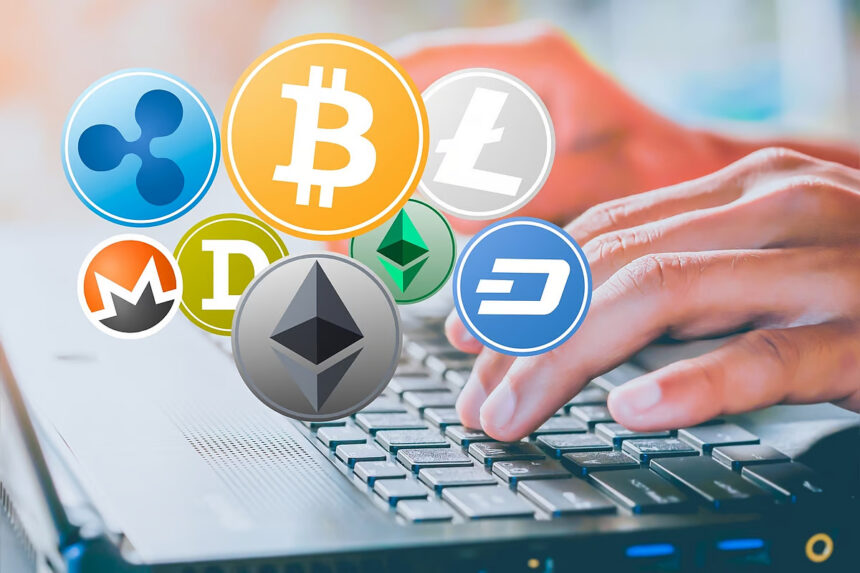The UAE is reinforcing its position as a global cryptocurrency powerhouse, with its digital assets sector experiencing exponential growth driven by progressive regulation, institutional adoption, and high-profile partnerships.
According to crypto market experts, despite global market volatility, the UAE’s crypto ecosystem is surging forward, marked by landmark regulatory approvals, strategic alliances, and expanding services from traditional financial institutions.
Ripple, a leader in enterprise blockchain solutions, has secured a licence from the Dubai Financial Services Authority (DFSA) to operate within the Dubai International Financial Centre (DIFC). This approval — Ripple’s first in the Middle East — enables the company to offer regulated crypto payment services and compliance-first solutions to businesses across the UAE, addressing longstanding inefficiencies in cross-border transactions such as high fees, slow settlement times, and transparency gaps.
Brad Garlinghouse, CEO of Ripple, emphasised the UAE’s strategic advantage, stating, “We are entering an unprecedented period of growth for the crypto industry, driven by greater regulatory clarity and institutional adoption. The UAE’s early leadership in fostering tech innovation positions it to benefit immensely.” The region’s $400+ billion international trade market and rising demand for blockchain solutions underscore this potential. A 2024 Ripple survey revealed 64 per cent of Middle East and Africa (MEA) finance leaders prioritize faster payments as the top value proposition for crypto adoption, while 82 per cent express high confidence in integrating blockchain into their
Arif Amiri, CEO of DIFC Authority, highlighted the milestone as a testament to Dubai’s innovation-friendly ethos: “DIFC is proud to support forward-thinking companies like Ripple as they shape the future of finance and accelerate blockchain adoption in payments.” Since establishing its MEA headquarters in DIFC in 2020, Ripple has grown its regional customer base to 20 per cent of its global portfolio, with plans to expand further.
In parallel, Crypto.com has forged a strategic alliance with Tawasal, a UAE sovereign tech leader, to integrate cryptocurrency services into the latter’s AI-driven SuperApp. The partnership aims to simplify crypto access for UAE consumers, combining Crypto.com’s trading infrastructure with Tawasal’s blockchain expertise.
Eric Anziani, president of Crypto.com, said the collaboration exemplifies how UAE’s tech ecosystem thrives through digital asset integration, benefiting both businesses and users. Tawasal’s Chairman, Khamis AlShamsi, added that the tie-up would enhance Crypto.com’s visibility in the local market, while CEO Eric Leandri stressed the focus on delivering “safe, interactive digital experiences.”
In a related development, Abu Dhabi-backed investment group MGX has made a $2 billion investment in Binance, deepening ties between the world’s largest crypto exchange and the UAE. The deal, which Binance called its first institutional investment, is one of the largest ever in the crypto industry. It will see MGX become a minority shareholder after making the investment in stablecoin – a type of cryptocurrency pegged to a fiat currency such as the dollar.
The UAE’s traditional financial sector is also embracing blockchain innovation. Emirates NBD’s digital banking platform, Liv, recently launched crypto services—a watershed moment signaling mainstream acceptance. The move aligns with the UAE’s vision to bridge conventional finance with decentralized technologies, offering customers seamless access to digital assets.
Stablecoins are emerging as a cornerstone of the UAE’s crypto expansion, offering real-time settlement advantages over traditional banking systems. Ripple’s own RLUSD stablecoin, launched in late 2023, has already surpassed a $130 million market cap, reflecting robust demand. Meanwhile, the MEA region leads in institutional crypto readiness, with over 80 per cent of finance leaders confident in blockchain integration.
While the UAE’s domestic growth accelerates, global crypto dynamics also play a role. Bitcoin recently rebounded above $80,000 following softer US inflation data, easing fears of prolonged bearish trends. Though US President Donald Trump’s proposed bitcoin reserve plans drew muted reactions, market optimism persists around clearer global regulations.
The UAE’s success stems from its proactive regulatory framework, which balances innovation with oversight. Dubai’s Virtual Assets Regulatory Authority (VARA) and the ADGM’s comprehensive guidelines have positioned the UAE as a haven for crypto firms seeking clarity. Reece Merrick, Ripple’s Managing Director for MEA, praised the UAE’s “progressive regulatory environment,” a sentiment echoed by industry leaders worldwide.
As institutional adoption surges and partnerships multiply, the UAE is poised to dominate the next phase of crypto evolution. With its strategic location, tech-forward policies, and thriving fintech ecosystem, the nation is not just weathering global uncertainties but defining the future of digital finance.
Crypto market experts said a confluence of regulatory milestones, corporate innovation, and institutional trust underscores the UAE’s transformation into a global crypto hub As Ripple and Crypto.com expand their footprints, and traditional banks like Emirates NBD embrace blockchain, the region is set to unlock new opportunities in decentralized finance, cross-border payments, and Web3 technologies—solidifying its status as a beacon of crypto progress,








